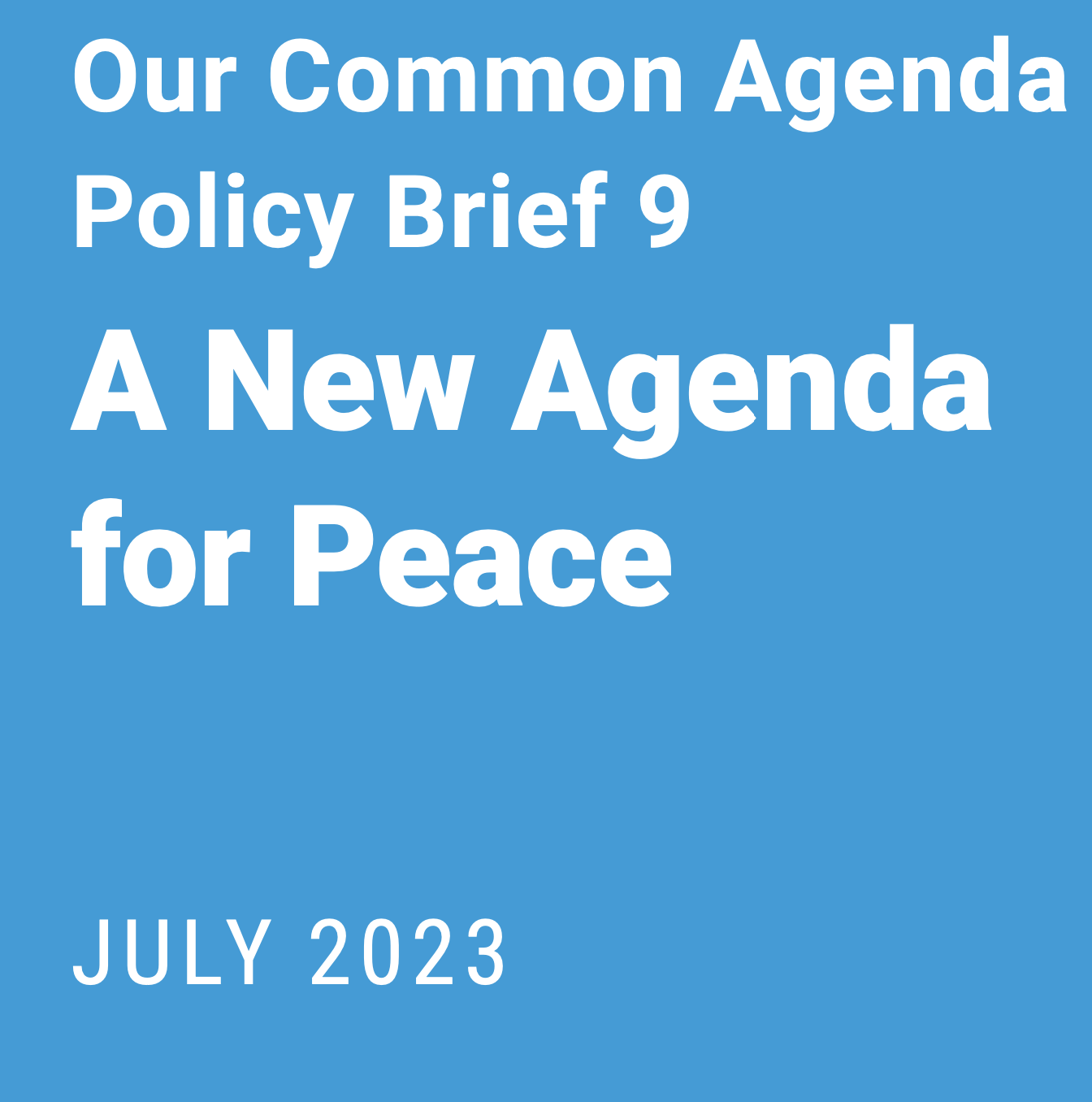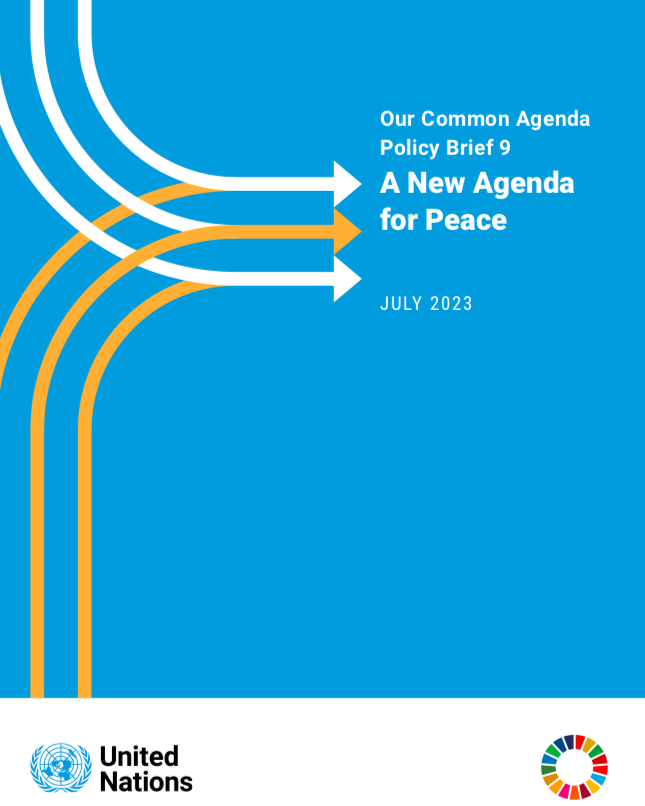Transition to a New Global Order
United Nations New Agenda for War and Robotocracy
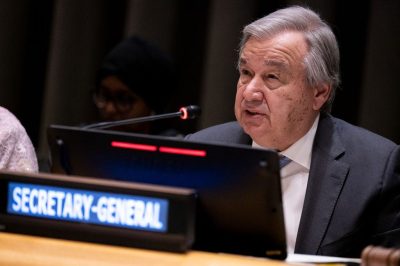
All Global Research articles can be read in 51 languages by activating the Translate Website button below the author’s name.
To receive Global Research’s Daily Newsletter (selected articles), click here.
Click the share button above to email/forward this article to your friends and colleagues. Follow us on Instagram and Twitter and subscribe to our Telegram Channel. Feel free to repost and share widely Global Research articles.
***
July 2023, the United Nations published a Policy Brief entitled “A New Agenda for Peace”. It is the ninth out of the eleven Briefs that has been released to support the UN’s “Our Common Agenda.
“The challenges that we face can be addressed only through stronger international cooperation. The Summit of the Future, in 2024, is an opportunity to agree on multilateral solutions for a better tomorrow, strengthening global governance for both present and future generations (General Assembly resolution 76/307).
In my capacity as Secretary-General, I have been invited to provide inputs to the preparations for the Summit in the form of action-oriented recommendations, build- ing on the proposals contained in my report enti- tled “Our Common Agenda” (A/75/982)
In the report the UN Secretary-General António Guterres declares:
“We are now at an inflection point. The post-cold war period is over. A transition is under way to a new global order.”
This sets the stage for a multipolar order that will replace the one that has been led by the United States since the dissolution of the Soviet Union, now, with a reformed United Nations at the helm to manage world affairs.
The UN explains that an angrier world is rising from the ashes with the emergence of new “poles of influence”. This has been hastened by “the coronavirus disease (COVID-19) pandemic and the war in Ukraine”.
New priorities are also added to the old threats of war and nuclear havoc.
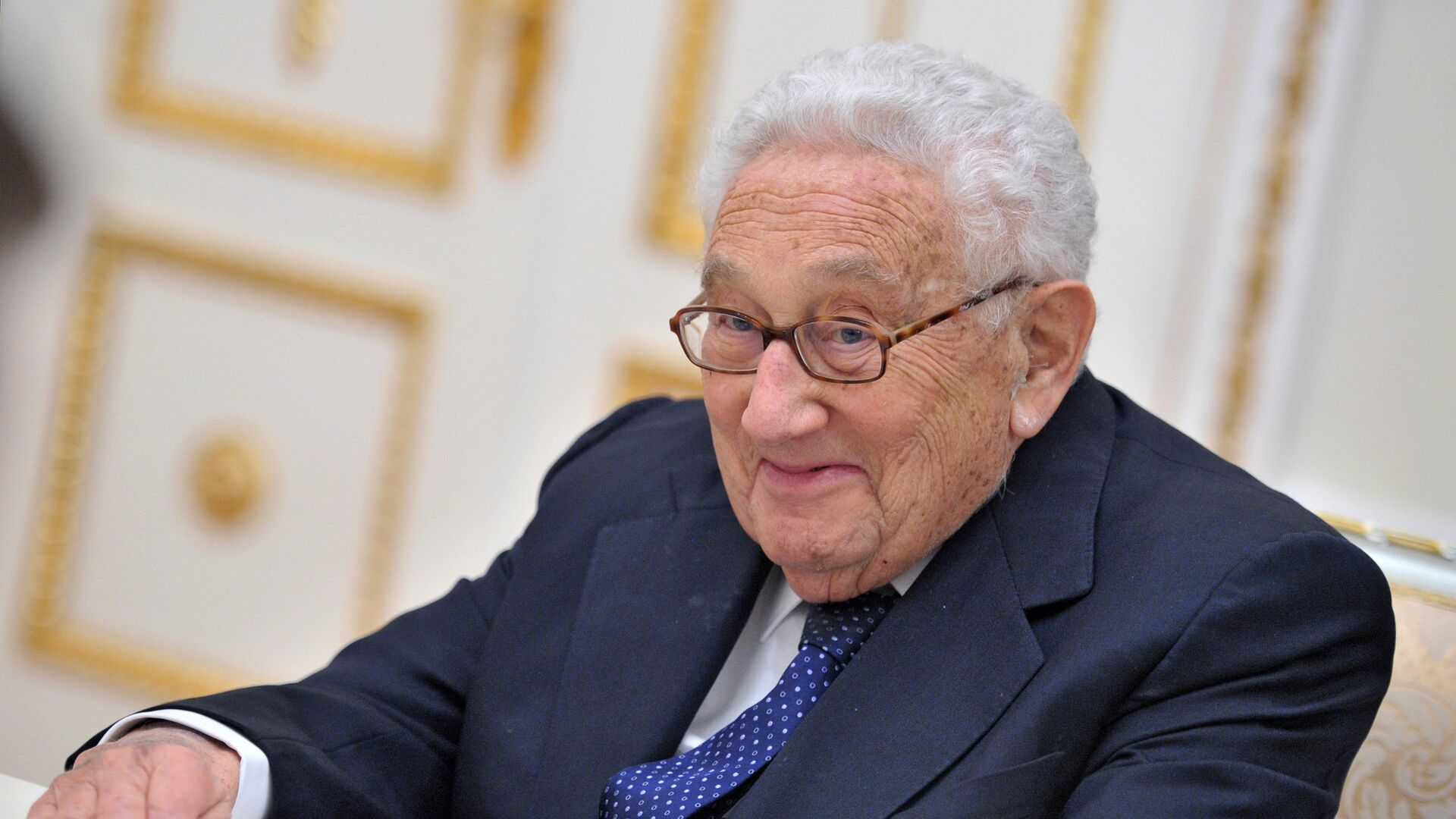 With a wording that seems inspired by the old geopolitical manipulator Henry Kissinger, the Policy Brief describes a world where nation states are unable to cope with the interconnected global problems on their own.
With a wording that seems inspired by the old geopolitical manipulator Henry Kissinger, the Policy Brief describes a world where nation states are unable to cope with the interconnected global problems on their own.
“Even the most securitized of borders cannot contain the effects posed by the warming of the planet, the activities of criminal groups or terrorists or the spread of deadly viruses. Transnational threats are converging. Their mutually reinforcing effects go well beyond the ability of any single State to manage.”
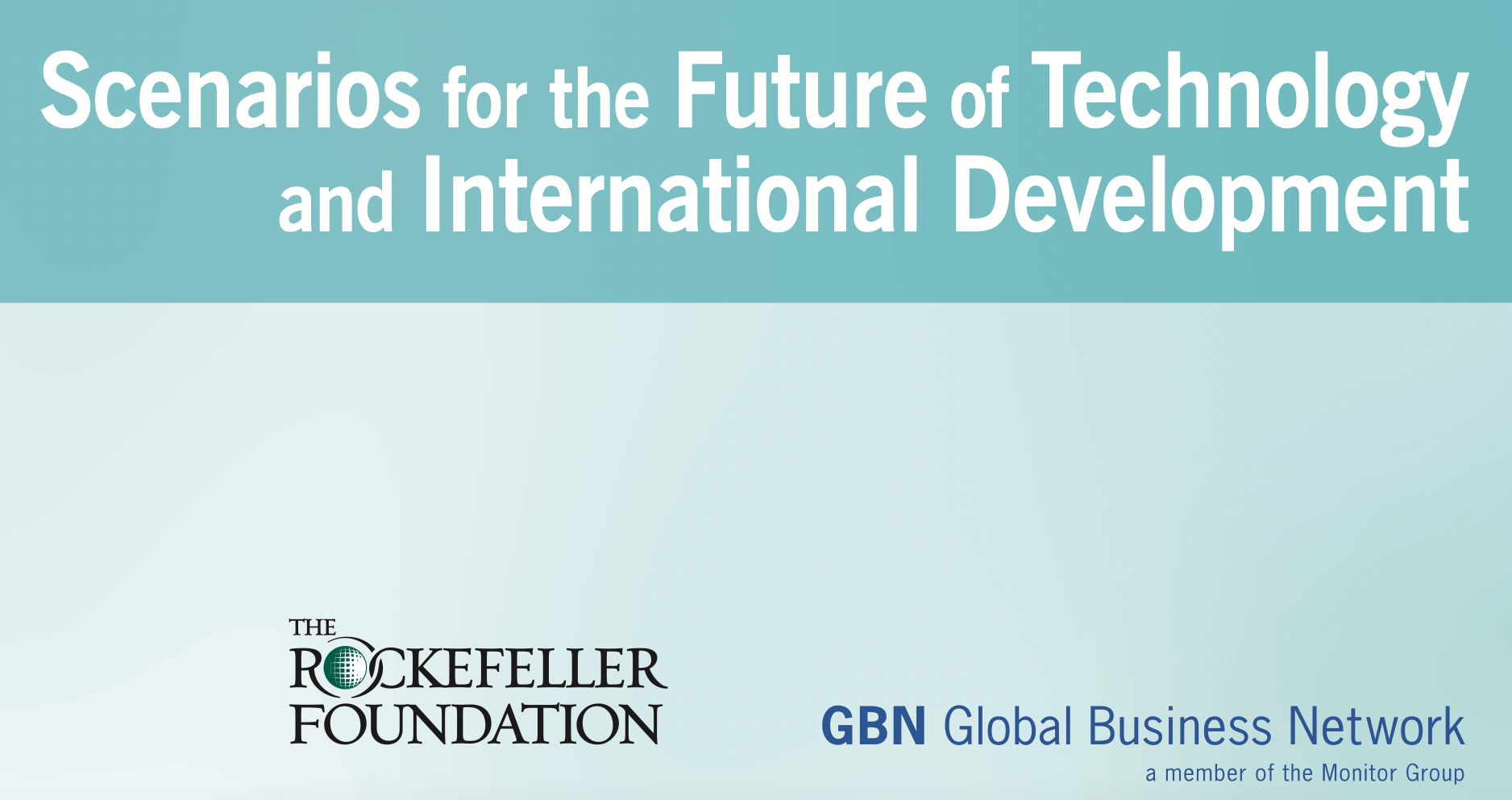 This also follows the script from the Rockefeller Foundation’s 2010 report Scenarios for the Future of Technology and International Development.
This also follows the script from the Rockefeller Foundation’s 2010 report Scenarios for the Future of Technology and International Development.
This means that United Nations has to step up and assume the role as the planet’s managing body.
Twelve actions are proposed.
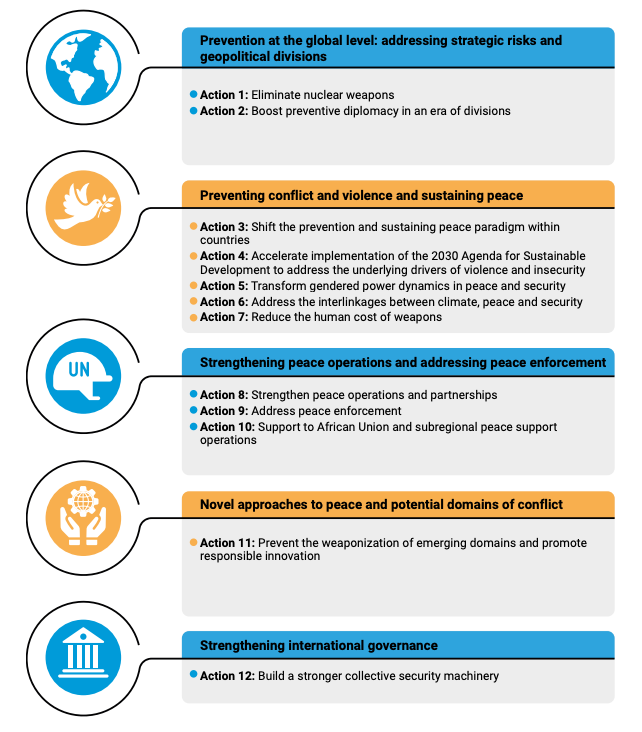
The agenda will, not surprisingly, have a bigger focus on accelerating the implementation of Agenda 2030 and the management of extreme global shocks (that was described in the Policy Brief Emergency Platform).
Click here to read the full article.
*
Note to readers: Please click the share button above. Follow us on Instagram and Twitter and subscribe to our Telegram Channel. Feel free to repost and share widely Global Research articles.
Featured image is from The Pharos Chronicle – Jacob Nordangård, PhD
Annex: A New Agenda for Peace
UN Policy Brief 9, July 2023
Introduction
Chapeau
The challenges that we face can be addressed only through stronger international cooperation. The Summit of the Future, in 2024, is an opportunity to agree on multilateral solutions for a better tomorrow, strengthening global governance for both present and future generations (General Assembly resolution 76/307). In my capacity as Secretary-General, I have been invited to provide inputs to the preparations for the Summit in the form of action-oriented recommendations, building on the proposals contained in my report entitled “Our Common Agenda” (A/75/982), which was itself a response to the declaration on the commemoration of the seventy-fifth anniversary of the United Nations (Assembly resolution 75/1). The present policy brief is one such input.
Purpose of this Policy Brief
In the declaration on the commemoration of the seventy-fifth anniversary of the United Nations, heads of State and Government undertook to promote peace and prevent conflicts. Honouring this pledge will require major changes by Member States, in their own actions and in their commitment to uphold and strengthen the multilateral system as the only viable means to address an interlocking set of global threats and deliver on the promises of the Charter of the United Nations around the world.
Member States must provide a response to the deep sense of unease which has grown among nations and people that Governments and international organizations are failing to deliver for them. For millions of people, the sources of that disappointment are to be found in the horrors of hunger, displacement and violence. Inequalities and injustices, within and among nations, are giving rise to new grievances. They have sown distrust in the potential of multilateral solutions to improve lives and have amplified calls for new forms of isolationism. As the planet warms, marginalization grows and conflicts rage, young people everywhere have grown disillusioned at the prospects for their future.
The choice before us is clear. Unless the benefits of international cooperation become more tangible and equitable, and unless States can manage their competition and move beyond their current divisions to find pragmatic solutions to global problems, human suffering will worsen. The urgency of all countries to come together, to fulfil the promise of the nations united, has rarely been greater.1
My report on Our Common Agenda offered a vision to deliver on this promise. It outlined a multilateral system that could be more just, networked and effective. Building this new multilateralism must start with action for peace, not only because war undermines progress across all our other agendas, but because it was the pursuit of peace that in 1945 unified States around the need for global governance and international organization.
This new multilateralism must recognize that the world order is shifting. It must adjust to a more fragmented geopolitical landscape. It must respond to the emergence of new potential conflict domains. It must also rise to address myriad global threats that have locked States into interdependence, whether they desire so or not. This new multilateralism demands that we look beyond our narrow security interests. The peace that we envisage can be pursued only alongside sustainable development and human rights.
The collective security system that the United Nations embodies has recorded remarkable accomplishments. It has succeeded in preventing a new global conflagration. International cooperation – spanning from sustainable development, disarmament, human rights and women’s empowerment to counter-terrorism and the protection of the environment – has made humanity safer and more prosperous. Peacemaking and peace-keeping have helped to end wars and prevent numerous crises from escalating into full-blown violence. Where wars broke out, collective action by the United Nations often helped shorten their duration and alleviate their worst effects.
Nonetheless, peace remains an elusive promise for many around the world. Conflicts continue to wreak destruction, while their causes have become more complex and difficult to resolve. This may make the pursuit of peace appear a hopeless undertaking. However, in reality, it is the political decisions and actions of human beings that can either sustain or crush hopes for peace. War is always a choice: to resort to arms instead of dialogue, coercion instead of negotiation, imposition instead of persuasion. Therein lies our greatest prospect, for if war is a choice, peace can be too. It is time for a recommitment to peace. In the present document, I offer my vision of how we can make that choice.


